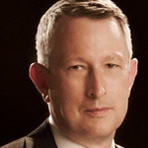Specialty
Joan Massagué
Cancer Research
Self Exam
- Occupation: I am the head of a department at MSKCC full of scientists investigating how cancers grow. As a cancer researcher I want to know why and how tumors spread to vital organs, and how we could prevent that from happening
- Alternative career choice: seriously considered becoming a carpenter or a wood sculptor. I love working creatively with my hands and the noble smell of wood is something that I find especially alluring.
- What do rock stars and scienctists have in common: Creativity, passion for what they do, striving for improving yesterday's accomplishment, and not being afraid of taking risks trying new things, pushing new concepts and ideas.
- Musical Instrument I Play: None
- I tend to approach life: through freedom
- Biggest misconceptions about me or my work: Some people stereotype scientists as sinister folks with dark desings or, at the other end of the range, goofy characters with crazy hair. Too many movies and too much of that Einstein poster. About my own field, people when is cancer going to be cured, when, in reality, half of all cancers are being cured today.
- Worst part-time job ever: n/a
- Longest med school study session: As a PhD student at the University of Barcelona I had to spend some nights until 3 AM in a cold-room waiting for a cell culture extract to flow through a filtering column. This in Barcelona - can you imagine? It barely left any time for some late tapas!
- Best moment in medicine/research: In research that would be the eureka moment, of course. It happens once in a blue moon but when it does, oh boy, it erases any memory of past frustrations.
About My Research
Disease Area: My research is on cancer biology and genetics.
Research Area: I study how tumors spread to form metastasis in other organs.
Science Impact/Accomplishments or Goal: Dr. Joan Massagué identified the TGFß receptors, their mechanism of activation, and the Smad proteins as receptor substrates and transcriptional activators, thereby establishing the central concept of how this pathway operates. An end result of this process is the inhibition of cell division through novel CDK inhibitors that he co-discovered. His work provided a direct explanation for how external signals from the cell membrane to the nucleus block mammalian cell division. These mechanisms are now known to be crucial in embryonic development, and their disruption causes congenital disorders and cancer. Dr. Massagué has identified genes, expression signatures, and miRNAs involved in the metastatic process. He has mentored and trained approximately 70 postdoctoral fellows and 12 graduate students in areas ranging from signal transduction to cancer models and experimental metastasis.
Research Description: We are interested in how growth factors, signaling pathways, and gene expression programs control normal cell proliferation and cancer cell metastasis. The development and maintenance of multicellular organisms requires tight control over the proliferation, differentiation, movement, organization and death of their constituent cells. Intricate molecular communication networks have evolved to control these processes. Our work is focusing on how cells receive, read and relay such signals, and how disruptions in these processes lead to tumor formation and cancer metastasis. We are approaching these questions through the rich venue provided by the transforming growth factor-beta (TGFß) pathway, as well as through the direct identification of metastasis genes and functions."
Biography
Degrees:
1975 B.S., University of Barcelona. Summa Cum Laude
1978 PhD, Biochemistry, University of Barcelona. Summa Cum Laude. Prof. J. GuinovartPositions
1979–82 Research Fellow, Brown University. Prof. M.P. Czech
1982–85 Assistant Professor of Biochemistry, University of Massachusetts Medical School
1986–89 Associate Professor of Biochemistry, University of Massachusetts Medical School
1989–03 Chair, Cell Biology Program, MSKCC
1989– Professor, Weill–Cornell Graduate School of Medical Sciences
1990– Investigator, Howard Hughes Medical Institute
2003– Chair, Cancer Biology and Genetics Program, MSKCCAdvisory Boards
1986–89 Member, Physiological Chemistry Study Section, National Institutes of Health
1998– External Advisory Board, MD Anderson Cancer Center
1990–96 Scientific Council, National Institute of Diabetes, Digestive and Kidney Diseases
1996–00 Board of Scientific Advisors, National Cancer Institute
1999–03 Scientific Advisory Board, Searle Scholars Program
2000–04 External Advisory Board, Fox Chase Cancer Center
2002–08 Scientific Advisory Board, Lustgarten Foundation for Pancreatic Cancer Research
2009– Board of Directors, American Association for Cancer ResearchHonors
1993 King Juan Carlos I Research Award, Spanish Royal House
1999 Elected Member, American Academy of Arts and Sciences
2000 Elected Member, National Academy of Sciences, USA
2000 Elected Member, American Academy of Microbiology
2004 Prince of Asturias Award in Science and Technology
2005 Jiménez Díaz Memorial Prize, Spain
2005 New York City Mayor’s Award in Science and Technology
2006 Vilcek Foundation Prize in Biomedical Research
2006 Elected Member, Institute of Medicine, USA
2007 Passano Laureate Prize, Passano Foundation
2007 Massachusetts General Hospital Award in Cancer Research
2008 Frontiers of Knowledge Award in Biomedicine, BBVA Foundation
2009 G.H.A. Clowes Memorial Award, American Association for Cancer Research
2010 Feodor Lynen Medal
